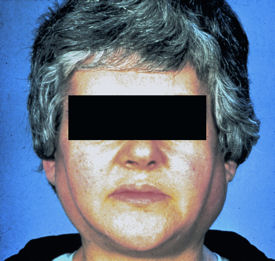2009 brings some changes to Welcome to Medicare exam
Medicare's initial exam adds new benefits, including end-of-life planning and body mass index measurements. Find out how this will benefit your practice.
Q: What is changing about the “Welcome to Medicare” patient examination?
A: The Medicare Improvements for Patients and Providers Act of 2008 (MIPPA) enacted many changes and improvements to the Medicare program and the newly expanded benefit under the Initial Preventive Patient Examination (IPPE), or the Welcome to Medicare exam, for newly enrolled Medicare Part B beneficiaries. This benefit is in addition to other Medicare-covered preventive services, e.g. influenza vaccination, colorectal cancer screening.
Q: When does the new benefit take effect?
A: The new changes took effective Jan. 1. Formerly, the IPPE was available to beneficiaries during their first six months of enrollment; that time period has been extended to 12 months. It is important to note that beneficiary eligibility is defined in Section 410.16(a) as: “an individual who receives his or her IPPE not more than one year after the effective date of his or her first Medicare Part B coverage period.”
Q: How, exactly, does this change the parts of the exam?
A: The IPPE adds end-of-life planning, with patient consent, and body-mass index (BMI) as required components to the IPPE. End-of-life planning is defined as verbal or written information regarding an individual's ability to prepare an advance directive in the case that an injury or illness causes the individual to be unable to make health care decisions, and whether or not the physician is willing to follow the individual's wishes as expressed in an advance directive.

A third revision of the benefit is the exclusion of the mandatory electrocardiogram ECG from the IPPE. Prior to this change, a physician had to furnish the ECG or make arrangements for the beneficiary to receive it if he or she did not offer it. The ECG is now an optional service, to be performed or ordered at the discretion of the physician. The beneficiary education and counseling related to the ECG are part of the IPPE. The actual ECG service is billed separately, using the HCPCS G-code(s) described below. This ECG is a once-in-a lifetime screening, stemming from a referral from the IPPE.
All other components of the IPPE, first implemented as a covered benefit in 2005, remain the same.
Q: How do we bill for the IPPE?
A: CMS requires the following selection of HCPCS codes to bill for 2009 IPPE services:
- G0402: Initial preventive physical examination; face-to-face visit, services limited to new beneficiary during the first 12 months of Medicare enrollment.
- G0403: Electrocardiogram, routine ECG with at least 12 leads; performed as a screening for the initial preventive physical examination with interpretation and report.
- G0404: Electrocardiogram, routine ECG with at least 12 leads; tracing only, without interpretation and report, performed as a screening for the initial preventive physical examination.
- G0405: Electrocardiogram, routine ECG with at least 12 leads; interpretation and report only, performed as a screening for the initial preventive physical examination.
IPPEs performed on or prior to Dec. 31, 2008 should be billed with the previous coding: G0344, G0366, G0367, and G0367.
The billing policy for reporting a medically necessary E/M service furnished at the same IPPE visit will still apply. CPT codes 99201 through 99215 may be used, depending on the circumstances, and appended with CPT modifier ‘‘-25’’ identifying the E/M visit as a significant, separately identifiable service from the IPPE code G0402.
This will not be assumed to be the typical circumstance. So, Medicare will monitor submitted claims to ascertain the typical billing patterns. It will monitor utilization patterns involving the level 4/5 new or established office or other outpatient visit codes being reported with the IPPE. If there are consistent data that demonstrate high usage of level 4/5 E/M codes in conjunction with the IPPE, the payment policy may require reevaluation.
A CMS description of the complete IPPE benefit, including these changes, is online.
Q: How much will Medicare pay for this?
A: Medicare will reimburse one IPPE per beneficiary per lifetime. The Medicare deductible does not apply to the IPPE if it is performed on or after Jan. 1 but the copayment remains. Both the deductible and copayment apply for the ECG service.
Despite the added components of the IPPE, the reimbursement under the 2009 Medicare Fee Schedule has not changed from 2008. CMS created new HCPCS billing codes for the IPPE, but does not believe that the physician work involved in the service is significantly impacted by the expanded benefit. The College has unsuccessfully argued that the payment for the IPPE has been undervalued since it was introduced in 2005. The CMS failure to increase the payment in recognition of the expanded work heightens the need for continued advocacy.



